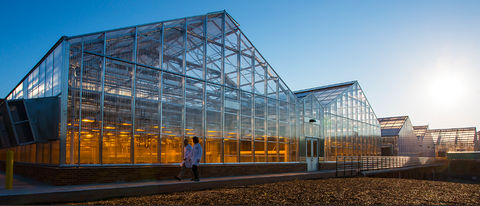Agriculture
Innovation Pipeline At A Glance
Innovation has never been more important than now, when farmers and agriculture are facing ever more complex challenges. We see these challenges as opportunities. BASF is one of the leading agricultural companies, aiming to make a positive impact on the global food system and help shape a sustainable future for farming: Supporting farmers with innovations and connected solutions that combine effective products, new technologies and services, tailored to different key crop systems around the world. Including seeds, crop protection, digital management tools and more.
Field crops – seeds & traits
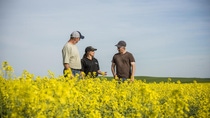
Canola/Oilseed Rape
BASF’s InVigor® pod shatter reduction and clubroot resistant trait technologies aid in protecting yield potential from clubroot and deliver added flexibility for growers at harvest. By mid-to-late decade, BASF will be introducing yellow-seeded canola which can be grown under more challenging conditions and will provide new rotation options for wheat growers in drier areas of North America, where drought and heat stress make traditional canola a less viable crop. Yellow-seeded canola hybrids will feature herbicide tolerance, a critical tool for weed control in canola production.
Cotton
For the 2024 U.S. growing season1, BASF will introduce Axant™ Flex Herbicide Tolerance Technology, the industry’s first quadruple-stacked herbicide trait package. Coupled with Alite™ 27 herbicide2, a new HPPD (hydroxyphenylpyruvate dioxygenase) herbicide coming to cotton, cotton growers will have new solutions available to win the fight against weeds. In Brazil, the team is preparing the path for the anticipated launch of a new stacked trait in 2024, that will help solve some of the most important issues that farmers have with weeds and insects in that region.
Rice
The Provisia™ Rice System and Clearfield® production system for direct seeded rice enable growers to continuously make better use of the limited arable land and are an alternative to wet paddy cultivation. These yield-preserving technologies will debut in India, Malaysia, Thailand, and the Philippines in the second half of the decade. Additionally, Provisia will enter the Chinese rice market by 2025. As an introductory step, BASF announced a long-term partnership with Seedworks Philippines to introduce BASF’s non-GM trait for Provisia herbicide-tolerance into the Philippines’ hybrid rice market. This collaboration is one of ten different seed partnerships across five countries in Asia that will launch Clearfield and Provisia herbicide tolerant traits in rice.
Soybeans
BASF is bringing a much-needed solution for over-the-top control of weeds in soybean, developing an additional PPO herbicide with a corresponding herbicide tolerance gene. That gene will be incorporated into a new herbicide tolerance trait developed by Corteva. It is a key element of a multi-generational soybean trait pipeline collaboration that is expected to be available in seed varieties in the early 2030s. Farmers will benefit from more flexibility to use PPO herbicides beyond pre-emergence to control weeds with over-the-top application.
To further support resistance management, an entirely new herbicide mode of action is currently in the late research phase at BASF. The corresponding herbicide tolerance trait for soybean is being developed by BASF as part of the collaboration with Corteva. Farmers will have the option to access this innovative trait technology through leading soybean seeds from BASF and Corteva. This longer-term approach from both companies will provide competitive alternatives for soybean farmers well into the 2040s.
Wheat
Hybrid wheat is a strategic focus by BASF and commercial market introduction is planned for the end of this decade. Ideltis™ hybrid wheat will deliver high performance in yield, quality and stability to meet the agronomic and economic needs of farmers and the value chain, and the nutritional needs of a growing population. Our activities demonstrate our commitment to transitioning wheat for long-term success through a advanced breeding platform adapted to local needs and supported by a continuous pipeline of innovation. In addition, our approach will meet the quickly changing needs of wheat growers and the value chain while balancing environmental protection and societal requirements.
1 Availability of cotton seed containing the Axant™ Flex technology for the 2024 growing season and beyond is subject to many factors, and such seed may not be available in all cotton-growing areas. Commercial sales of cotton seed containing the Axant™ Flex technology will be subject to contractual terms and conditions and stewardship obligations, which may include among other requirements restrictions on where the crop resulting from such seed may be sold, transferred and/or exported. Alite™ 27 herbicide (EPA Reg. No. 7969-433) is not registered for use on isoxaflutole-resistant cotton nor available for sale for such use. Information on using Alite 27 herbicide on isoxaflutole-resistant cotton is provided for educational purposes only and is not intended to promote the sale of this product. Any sale of Alite 27 herbicide after registration is obtained for use on isoxaflutole-resistant cotton shall be based solely on the EPA-approved product label, and any claims regarding product safety and efficacy shall be addressed solely by the label.
2 Alite 27 herbicide, a US EPA Restricted Use Pesticide, is currently labeled solely for weed control in GT27 or isoxaflutole-resistant soybean grown in select counties in certain states. This product is not labeled for use on isoxaflutole-resistant cotton.
After EPA approval of Alite 27 herbicide (EPA Reg. No. 7969-433) registration allowing use on isoxaflutole-resistant cotton, Alite 27 herbicide may only be used on GT27 or isoxaflutole-resistant soybean or isoxaflutole-resistant cotton. Crops not containing a gene expressing an HPPD protein will not be tolerant to Alite 27 herbicide.
Xitavo is a trademark of M.S. Technologies, L.L.C., West Point, IA. Enlist and the Enlist logo are registered trademarks of Dow AgroSciences. The transgenic event in Enlist E3 soybeans is jointly developed and owned by Dow AgroSciences LLC and M.S. Technologies, L.L.C.
Always read and follow label directions.
Vegetable seeds
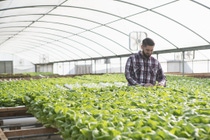
BASF is planning the introduction of new vegetable seed varieties and innovations to address the needs of partners along the food value chain, from growers through consumers around the world. For example, BASF is working on varieties that will provide growers with benefits such as higher yields, better disease resistances, and improved fruit quality, all with careful attention on sustainability. In addition, key flavor components have been identified that will enable a better profiling of hybrids in line with consumer preferences to help provide healthy eating that is enjoyable and sustainable.
A few examples of innovations in our vegetable seeds business include spinach varieties with the best downy mildew resistance package in the industry, a unique portfolio of hybrid artichoke varieties, tomatoes adapted to rising global temperatures, and our cutting edge indoor growing techniques that provide optimal combinations of fruit and vegetable varieties with growing programs optimized for our partners.
Seed treatment
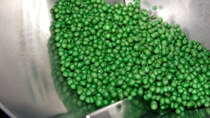
Seed treatments from BASF can help farmers address environmental and economic challenges and contribute to a more sustainable future. We are continuously developing innovations to help farmers protect the yield potential of each seed and enhance the performance of seed, seedling and plant. Through our broad portfolio of seed treatments, we help farmers extend the crop protection window, improve plant vigor, enhance efficacy and maximize plant resources. Seed treatments offer lower use rates than foliar products and are effective on many below and above ground pests.
Our innovation pipeline includes seed treatment projects like the Poncho® family: Poncho® Votivo® seed treatment provides unrivaled insecticidal protection against above and below ground pests and enhances growth promotion, leading to higher yield potential for a range of crops. Its unique combination of two active ingredients immediately protects the whole plant while delivering healthier roots and more uniform stands, so high-value plants can thrive regardless of growing conditions. Poncho® Votivo® 2.0 seed treatment system includes an additional biological bacteria that enhances the microbial activity around the corn roots, resulting in greater nutrient availability and uptake leading to higher yield potential.
Teraxxa™ insecticide seed treatment provides protection against wireworms. Teraxxa™ F4 combines an insecticide and a fungicide to provide, in addition to wireworms, protection against Fusarium, Rhizoctonia, Pythium and Phytophthora. Both products protect a wide range of crops, including winter and spring wheat, barley, oats, rye, chia, quinoa and buckwheat.
The Revysol® based fungicide Relenya® protects winter wheat against seed and soil borne disease like bunts, Rhizoctonia, and Fusarium. Now available in North America, launch in several European countries is anticipated for 2022.
Pavecto® fungicide will protect against snow mold, septoria leaf blotch, tan spot, ramularia and net blotch for all cereal crops.
Vault ® IP Plus seed treatment, a fully dimensional soybean inoculant, augments nitrogen fixation with a unique EPA-registered dual-strain biofungicide and the lowest application rate in its class. These three dimensions deliver increased overall nodulation, extra protection from soil-borne diseases and more room on the seed for other treatments.
Crop protection – herbicides

BASF’s expanding herbicide portfolio is targeted at two ongoing challenges: the evolution of weed resistance and an increasingly complex regulatory environment. The following pipeline highlights will enable BASF to maintain its long and distinguished track record of providing and broadening its herbicide portfolio that provides growers with innovative weed control solutions to help not only with yields and quality, but also resistance management.
In 2019, BASF received its first regulatory approval for and introduced Luximo®, a new and innovative herbicide active ingredient, to Australian farmers. Future regulatory approvals are anticipated in the UK and EU. BASF has also received regulatory approval for an additional new herbicide active ingredient in Australia and Canada: Tirexor® herbicide. A further regulatory dossier for Tirexor has been submitted in the U.S..
These new herbicides have been specifically developed to control resistant weeds – Luximo primarily for grass weeds and Tirexor for key grass and broadleaf weeds – to ensure that farmers worldwide continue to have access to effective weed management solutions.
To advance one of the industry’s broadest herbicide portfolios, BASF will develop herbicides from a new class of PPO-inhibitor chemistry specifically to control large and small seeded broadleaved weeds, as well as a wide variety of warm and cold season grasses and sedges.
Crop protection – fungicides

BASF is pioneering the search for new active ingredients in the fight against fungal diseases. For many years, we have been at the forefront of fungicide research, setting new standards in this area. With the introduction of the following fungicide innovations from the pipeline, BASF will strengthen its industry-leading position:
With its latest fungicide innovation Revysol®, BASF will provide farmers in all regions with an essential tool to manage resistance and optimize their farm operations. Revysol-based products have been introduced globally in all major crops. Excellent products like Veltyma® for corn and Revytek™ in soybean in the US and cereal products like Revystar® and Revycare® in Europe will be key for BASF’s new product portfolio in these crops. Further registrations have already been received in Australia, China, Colombia, Ecuador, Korea and Peru. BASF has also introduced a new technology in seed treatment based on Revysol® and marketed under Relenya™ brand. This product will protect the seed and root zone of cereal crops from pathogenic fungi during the early development of the plant. Find out more about our seed treatment innovations in the section above.
In addition, the novel fungicide, Pavecto®, co-developed with Sumitomo Chemical, will offer an effective solution to control major diseases, including Septoria leaf blotch in wheat, and help growers improve their productivity and profitability. The global initiative for regulatory approval of Pavecto has started with the submission of the regulatory dossier to the European Union (EU) in March 2018. Pending regulatory approval, BASF expects first market introductions of customized formulations containing Pavecto in the middle of the decade.
BASF also continues to grow its fungicide family with two new fungicides currently in early research. To meet the increased demand for biologicals, a next generation biofungicide is also in development.
Crop protection – insecticides
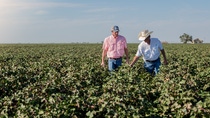
BASF remains committed to active investment in pioneering R&D for new insecticides that simplify farmers’ operations and address the toughest pest threats and production needs. Taking a balanced approach against a complex societal, regulatory, environmental and business background, BASF is deepening its diversified insecticide portfolio with the following compounds showing new modes of action:
In 2020, BASF has started the global registration initiative for the company’s latest insecticide innovation: Axalion™. With its novel mode of action, the new active ingredient will help farmers safeguard their yield without negatively impacting soil and water organisms or birds. When applied according to the respective label instructions, Axalion based products will not impact beneficial insects. The new compound is also an essential tool in preventing insecticide resistance. Further down the pipeline, BASF is developing compounds to combat pests, give farmers more control and support them in managing the ever-increasing threats to their land, legacy and livelihoods. The development pipeline includes a focus on insecticides to combat a broad range of pests in multiple crops globally.
BASF has received the first registrations in the Australia, Canada, China, Columbia, Guatemala, India, Mexico, Pakistan and in the United States for the new active ingredient Inscalis®. The new compound, co-developed with the Japanese company Meiji Seika Pharma Co. Ltd., offers farmers an essential tool to protect a wide range of crops from critical piercing and sucking insect pests. The company anticipates further registrations in South and Latin America. BASF continues to work closely with growers using these insecticide products to prevent aggressive piercing-sucking pests from damaging yields and transmitting viruses.
Continuing the global expansion of the insecticide portfolio, BASF received regulatory approvals for Broflanilide in Australia, Canada, China, Columbia and the U.S.. Further registrations in India, Mexico and other countries are expected. Broflanilide is a powerful and versatile insecticide to control chewing pests. Seed treatment applications based on Broflanilide, marketed under the Teraxxa™; brand, will target difficult to manage wireworms in cereal crops; with a launch planned in North America for the 2021 planting season. Find out more about our seed treatment innovations above.
Crop protection - BioSolutions
Based on beneficial living organisms and substances derived from nature, BioSolutions by BASF are natural partners in helping enhance crop protection management and support plants throughout their life cycle.
Part of BASF’s extensive BioSolutions portfolio, Velifer® works by releasing the spores of the beneficial fungus, Beauveria bassiana, strain PPRI 5339, onto the plant surface. When common pests like aphids, mealy bugs, thrips, two-spotted spider mites and whiteflies come into contact with them, the spores germinate and invade the recipients. With minimal use restrictions and a favorable environmental profile, it’s a flexible and effective way to suppress and maintain low pest populations, while helping meet societal demands for more sustainable and natural solutions.
Serifel® is a preventative bio fungicide that helps you control disease and meet sustainability challenges. Based on the beneficial bacterium Bacillus amyloliquefaciens strain MBI 600, Serifel® forms a strong shield of protection around plants, providing broad-spectrum disease control through multiple modes of action. It helps combat resistance and reduce inputs when used with conventional chemistries and in integrated crop management systems. It can also be used in organic production. It’s easy to use, highly active at high and low temperatures, has a wide application window and can be flexibly applied throughout the growing season.
BioSolutions by BASF like Velifer® Bio Insecticide and Serifel® Bio Fungicide will continue to launch worldwide, including in the EU, China and Latin America over the coming years.
BASF has deep expertise developing natural partners for pest and disease control. To help meet the ever-growing demands of people and society for high quality food grown more sustainably, the company believes in finding the right balance between efficacy and sustainability. BASF offers the world leading Nemasys® and Nemaslug® range of biological insect controls based on a variety of beneficial nematodes, the tiny, microscopic worms that are always present in the soil. This biological pest control option provides excellent control, effectively mitigating insect numbers for the following year.
Nitrogen use efficiency
BASF’s portfolio of nitrogen stabilizers helps growers get more out of their nitrogen fertilizers through improved nitrogen use efficiency. This ensures that nitrogen is available to crops when they need it most. For balanced crop nutrition, growers need to optimize uptake of nutrients and reduce nitrogen loss into the environment all while facing economic pressures, scarce resources and increasing government regulations. BASF urease inhibitor Limus® has shown to reduce ammonia loss by up to 98%, which allows the urea nitrogen to work more efficiently, leading to higher yields with less application. BASF nitrification inhibitors, including Vibelsol® and Vizura®, can reduce, on average, nitrate leaching by 47% and nitrous oxide emissions by 50%, and has shown increased yield, improved quality, and reduced need for additional mineral fertilization.
Digital farming – Plan smarter, grow better

The success of BASF Agricultural Solutions’ customers depends on many factors such as weather, plant health, soil conditions and prices for agricultural products. As a result, farmers today need to analyze more and more data of increasing complexity to make the right farming decisions. BASF’s xarvio® Digital Farming Solutions help farmers use this data to their advantage, as a basis for making better informed decisions throughout the growing season, while ensuring more efficient and sustainable resource inputs and allocation.
xarvio® FIELD MANAGER is a digital farming tool that supports farmers in many areas of agronomic decision making, from seeding to harvest, to optimize crop production. The goal: to produce crops even more efficiently and sustainably to get the most out of every field. Using xarvio® FIELD MANAGER, farmers can conveniently see the status of their fields at any time and can benefit from field-zone specific insights and timely, precise crop management recommendations. The global leading digital farming solution also enables the automatic creation of zone-specific variable application maps for seeding, crop protection and nutrition for a variety of crops. xarvio® FIELD MANAGER combines and continuously analyzes multiple data inputs, including historical agronomic information, in-season risks, weather data and satellite-based biomass images along with the farmer’s lifetime of experience and agronomic expertise. This ensures clear agronomic recommendations are provided for managing individual fields and field-zones. xarvio® FIELD MANAGER currently focuses on supporting farmers in major agricultural producing countries including Argentina Brazil, Canada, France, Germany, Ukraine and the U.S.A.
Launched in 2020, xarvio® HEALTHY FIELDS is a market first. It is an outcome-based digital farming solution that provides a field and season specific crop protection (CP) strategy that guarantees plant health at the start of the season for a fixed price. If the calculated crop protection strategy doesn’t work, then the farmer is financially compensated. xarvio® HEALTHY FIELDS is powered by advanced field-zone specific crop production algorithms, which monitor, analyze and execute the most efficient crop protection strategy for each field. The assured outcome of xarvio® HEALTHY FIELDS is for winter wheat and winter barley. xarvio® HEALTHY FIELDS is fully transparent, with every application recorded and documented to fulfil legal requirements.
xarvio® Digital Farming Solutions’ product portfolio is continually growing to help farmers make better informed field management decisions from seeding to harvest. New features for existing products are launched regularly and based on important engagement and feedback from customers.
The global agriculture market is changing and demands new technologies to improve efficiency by optimizing the use of inputs in agriculture, like for instance plant protection products, to deliver the best outcomes possible for farmers. A key strategy for BASF to achieve this is a strong focus on partnerships; working with like-minded companies large and small to develop and bring to market innovative products. The joint venture partnership established between BASF and Bosch illustrates this. Through this partnership, an innovative new product has been brought to market, which focuses on driving farming efficiencies, while supporting sustainability, preserving biodiversity and delivering measurable value to farmers. The unique solution for precision weed management is ONE SMART SPRAY. It was commercially launched in Europe (Germany and Hungary) in spring 2023 and has been integrated with intelligent crop protection sprayers produced by Dammann. The technology will also be integrated with crop sprayers produced by AGCO. CNH Industrial and is expected to available in the North American and Latin American markets by the end of 2024. ONE SMART SPRAY combines Bosch’s high-tech camera sensor technology and software with xarvio’s advanced agronomic logic and intelligence to in milliseconds precisely detect weeds in crop rows and spot apply the right herbicide mix only where it’s needed and in the right dose. This action leads to better weed control and the optimized use of herbicide, which facilitates a volume reduction and means herbicide resistant weeds do not develop and there is less impact on biodiversity. BASF’s goal is to create, develop and lead the emerging smart sprayer technology market.
Solutions beyond crop protection – public health

For BASF, the potential of our innovation pipeline goes beyond our agricultural portfolio. Our Public Health solutions bring value and health for world communities and save lives.
Malaria still affects over 300 million people every year, and it takes scientific expertise, passionate persistence, and continuous innovations to continue the fight against this disease.
With BASF’s Interceptor®G2 mosquito nets, we provide a revolutionary way to control the spread of mosquito-borne diseases. Unlike conventional mosquito nets, Interceptor®G2 nets employ an innovative combination of two different active ingredients and a proprietary textile coating process. The net has proved to be the only one to control mosquitoes resistant to traditional insecticides. This next-generation net is a product of strong research collaboration among scientists across the world.
In partnership with MedAccess and the Bill & Melinda Gates Foundation, BASF announced in 2019 an agreement to facilitate the supply of 35 million Interceptor®G2 mosquito nets to countries where insecticide resistance is hindering the fight against malaria. Despite the challenges caused by COVID-19 pandemic, we were able to fulfill our joint target of delivering 35 million Interceptor®G2 mosquito nets by end of 2022. New Nets Project.
Increased access to effective mosquito nets contributes tangibly to the UN Sustainable Development goals and saves lives.
